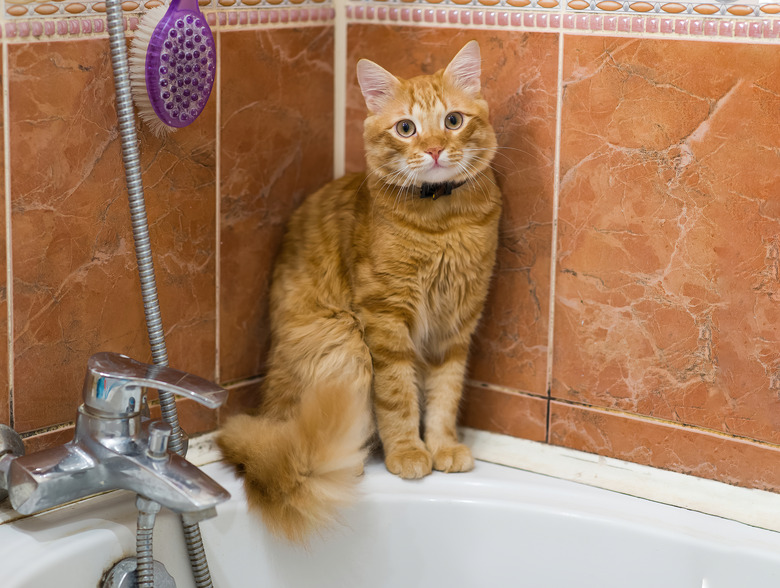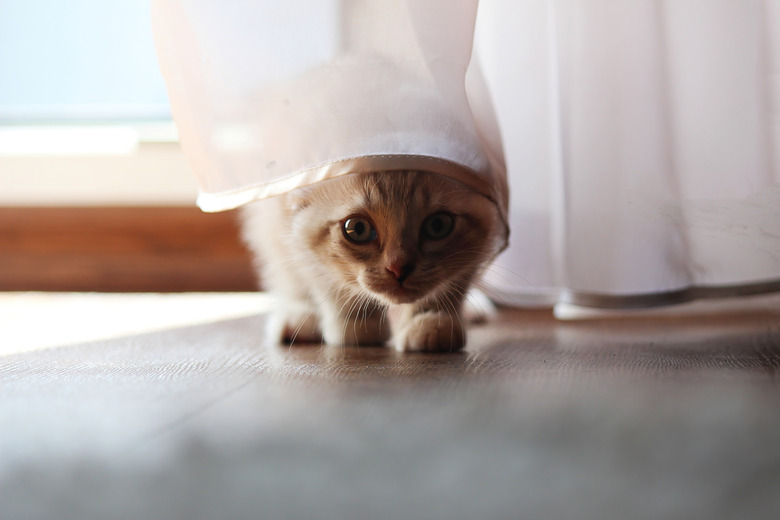How Long Will It Take My New Cat To Warm Up To Me?
For anyone who's adopted a new cat, you may find that it took a bit of time before your feline friend warmed up to you. Most newly adopted pets have a transition period after coming home, where they may feel a bit overwhelmed or even scared in the beginning, but usually come around, assuming it's the right fit. While there's no answer across the board, cats can warm up to their new home in one day, or over the course of several months, depending on the cat and her new environment.
Understanding where your new cat came from
Understanding where your new cat came from
New cats, like all adopted animals, are likely feeling a slew of things upon arriving at their new forever homes. Perhaps scared, exhausted, confused, relieved or a combination of all of those things, being welcomed home may not be as exciting to them as it is for you, even if they are grateful for it. While you can't make your cat come around to their new life any faster, you can make the transition easier on them through being consistent, caring, and compassionate to what they may have been through. Allowing them time and space to take care of themselves, and not expecting them to be loving and snuggly before they're ready to be will go a long way in creating a great life with a new cat.
New cats and adjustment periods
New cats and adjustment periods
Having basic amenities ready and waiting for your cat upon his arrival is a great start to a transition. A food and water bowl and a litter box set in a designated space that's accessible but comfortable to visit (this might look like a quiet corner of a small room for shy cats,) will let him know he's in his new home. Many people like to dedicate a specific room in the house to allow a cat to unwind in for the first couple of days. Sitting in the room with him and allowing him to approach you on his own time will let him know he's safe and is a great trust-building exercise. If he allows it, you can try petting him, or even making playtime part of your visits can make the transition smoother, which is especially enjoyable for younger cats. Providing a space to sleep, like the carrier you brought him home in, or a soft, clean cat bed or blanket is also preferred by many felines.
The adjustment period may take a bit longer if you're welcoming a new cat into a home with existing cats in it. Cats, who are territorial animals, may not welcome a new feline into their space, so be sure to add supervised introductions over a period of time so that cats can acclimate to each other safely. An adult cat or an older cat may also take a bit more time to adjust to a new life than a younger feline, but making things available that older cats might enjoy, like toys, space in sunny windows, treats and affection can help them acclimate.
Reading your cat’s needs
Reading your cat's needs
The long-standing joke about cats is that they're timid, aloof, and shy, at best, if not completely indifferent to the needs of the people closest to them. While this may be attributed to the personalities of some specific cats, cats who find themselves in new homes may retreat out of fear, as a self-soothing method, or simply to decompress and familiarize themselves with their new surroundings. One way you can tell if a cat is uncomfortable is by reading her body language, which includes her facial expressions and the way she vocalizes, which can mean different things depending on the sounds. Signs of discomfort shown via body language can include an arched back, dilated pupils, tail thrashing and excessive meowing.
In conclusion
In conclusion
There is no definite timeline for when a cat might warm up to you, as every cat is different and may have his own previous experiences affecting his ability to bond right away. Generally, kittens tend to warm up more quickly than adult cats or older cats, although the latter can certainly come around quickly as well. The best thing you can do to get your new cat to warm up to you is to make sure his basic needs, like food, shelter, and water, are met consistently, and to give him time to decompress and familiarize himself with his new environment and the people in it.


